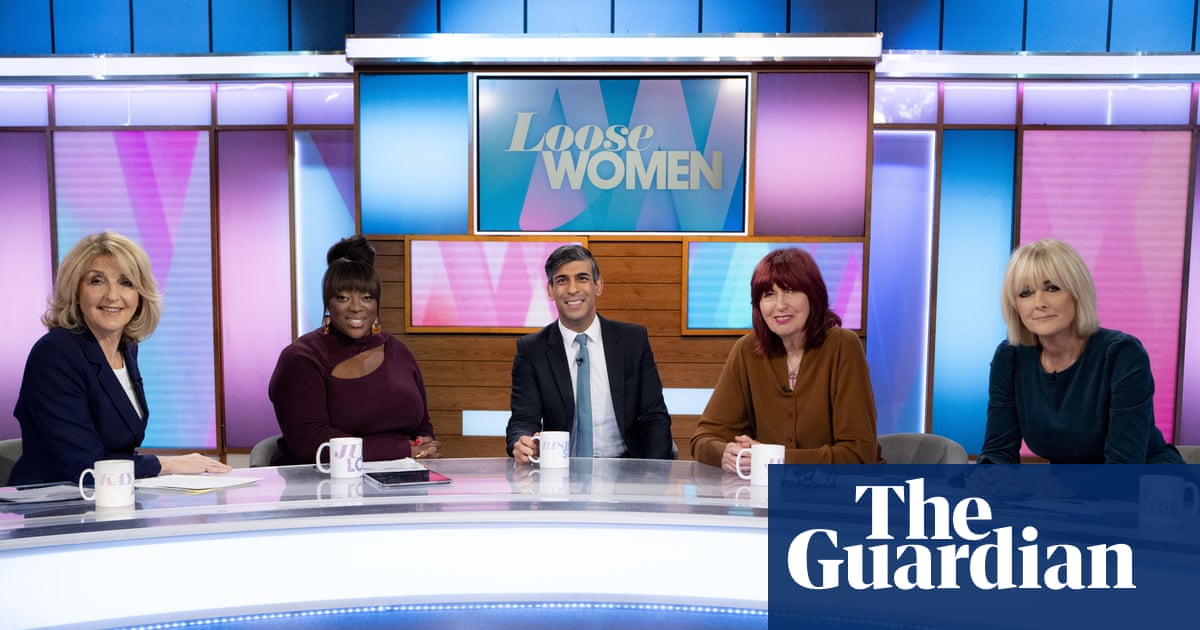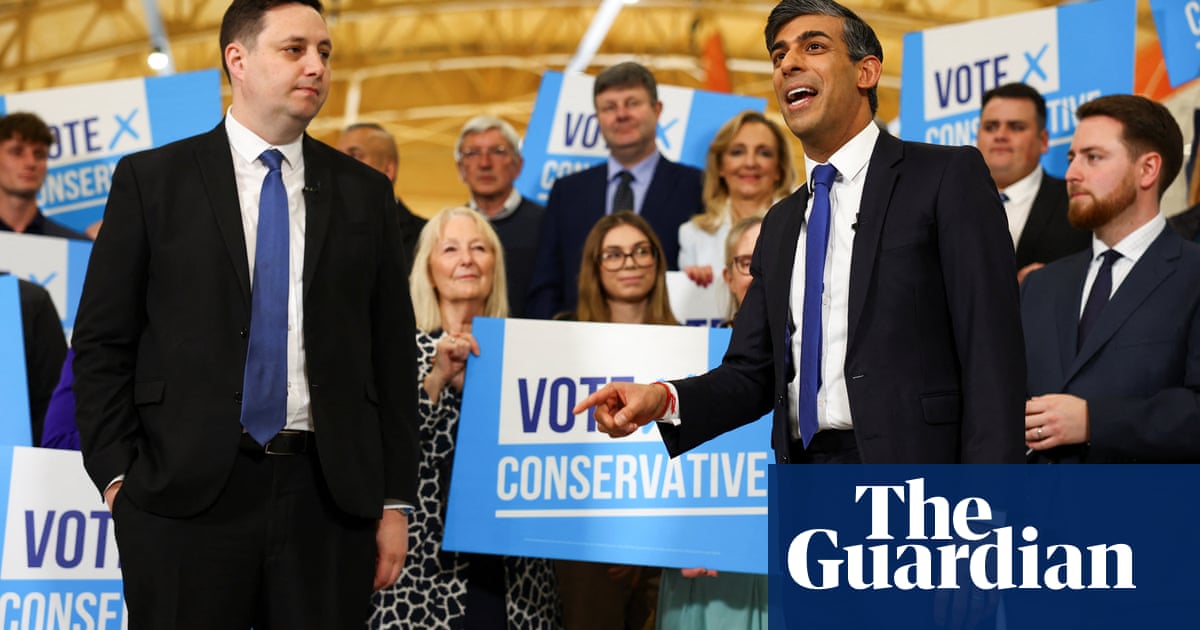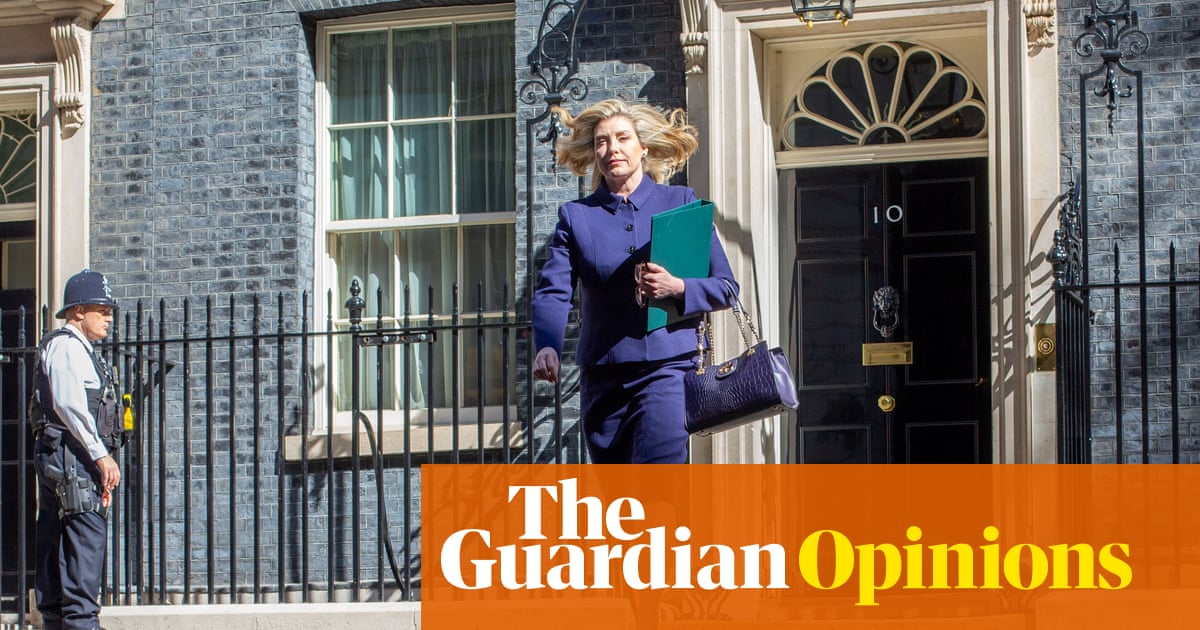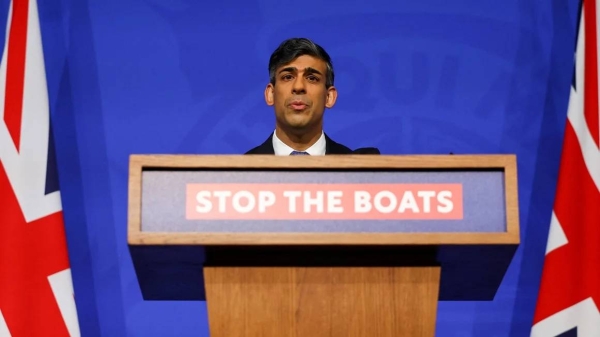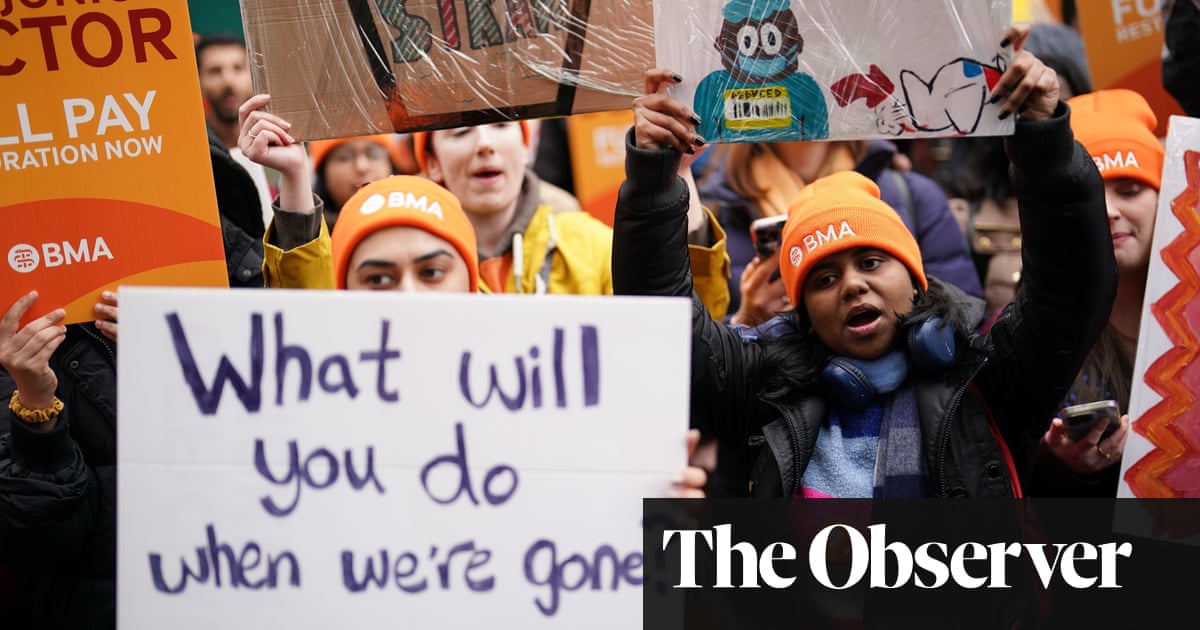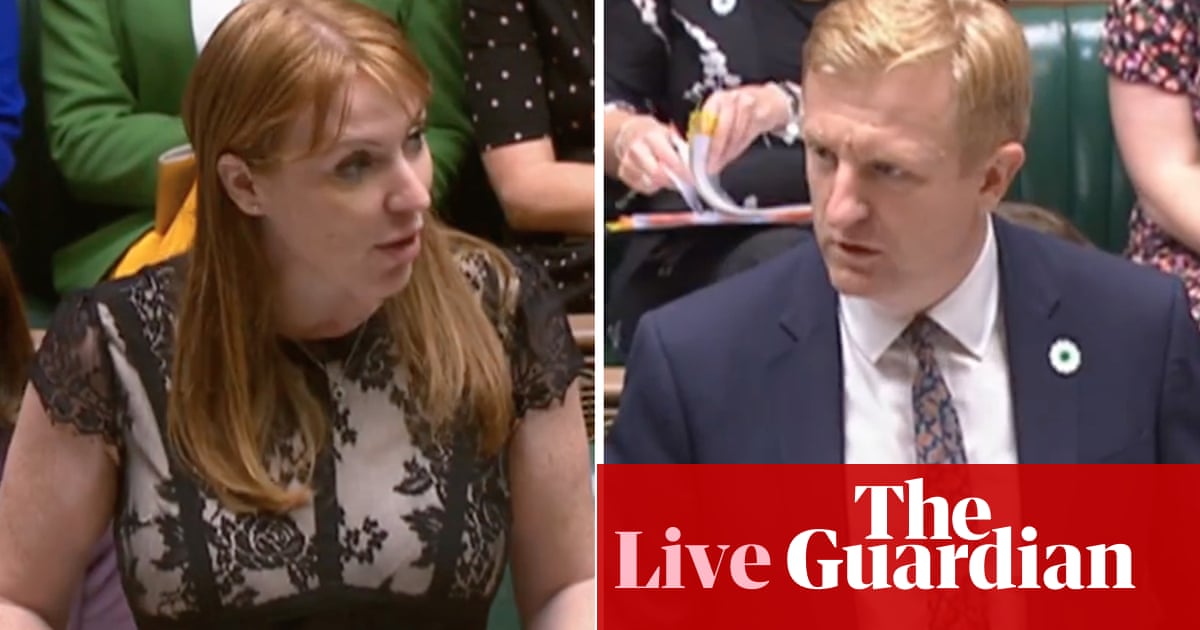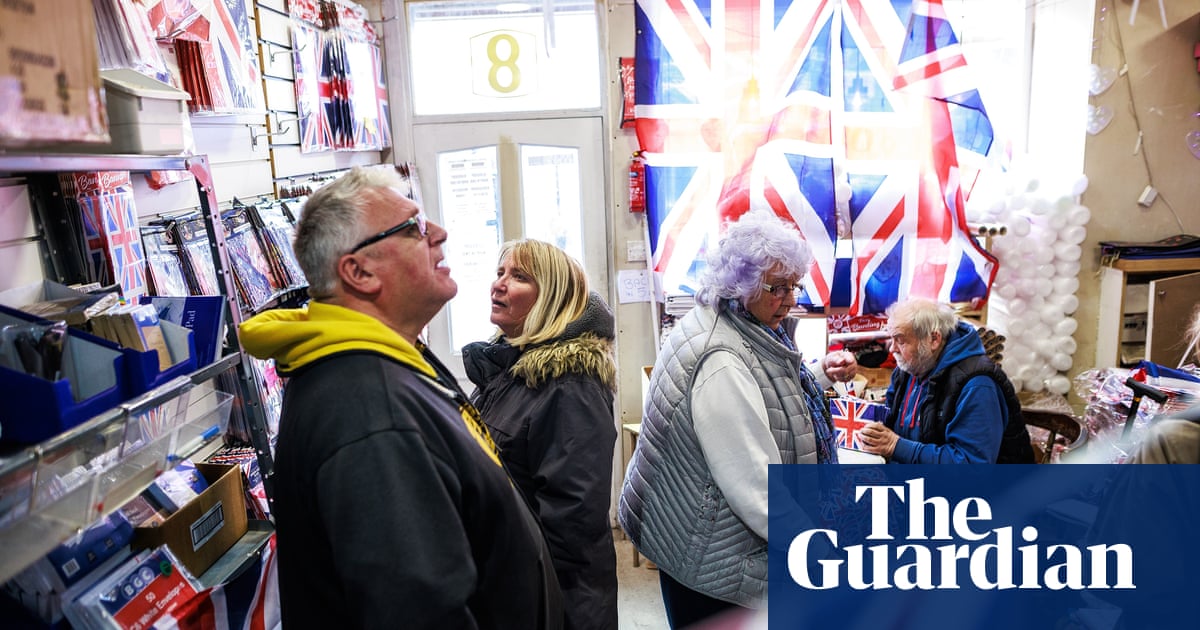
Amid a flurry of stump speeches and cringe-inducing stunts, Labour and the Liberal Democrats launched their local council election campaigns this week with the sort of media-focused flourish you would expect of such occasions.
At a community hub in Swindon, an area Labour hopes to take on 4 May, Keir Starmer was introduced by his deputy, Angela Rayner, as “the next British prime minister”, rolling up his shirt sleeves to tell placard-waving activists they should be “hungry for change”.
A day earlier, the Lib Dem leader, Ed Davey, drove a tractor through a literal “blue wall” of painted hay bales, representing vulnerable Conservative seats, in Berkhamsted, Hertfordshire. The Tories, Davey declared, were “out of touch, out of ideas and out of excuses”.
They were also, it later transpired, out of sight – and deliberately so.
Curious to learn when Rishi Sunak would be launching his party’s local election campaign, journalists called Conservative headquarters, only to be told that it had already happened.
The week before, the prime minister had briefly visited the Black Country, with only local media invited. In a short article in the Express & Star newspaper, based in Wolverhampton, Sunak insisted the Tories would “fight for every vote”, while conceding it could be a tricky election for a party in power for so long.
The Conservatives have the most to lose, defending four in 10 of all seats up for grabs, and overall control in 83 of the 230 councils being fought. The contests may also be the last real electoral test before next year’s general election, so the stakes are particularly high.
Colin Rallings and Michael Thrasher, two local elections experts, said: “A 6% swing from the Conservatives to Labour since 2019 could see Conservative seat losses breaching 1,000 with Labour registering 700 or so gains. Such a swing is rather less than current polling suggests, but even in the Blair era Labour struggled to match its poll rating with local votes. Anything far outside those parameters will provide succour or pain accordingly.”
One curiosity of this local election cycle in England is that while national polling points strongly towards a UK public increasingly keen to eject a long-governing party, the position in local government appears to be different.
In 1995, towards the dog days of John Major’s government, Labour had twice the number of councillors across the UK as the Conservatives. In 2010, after 13 years of Labour rule, the positions were reversed. But now, another 13 years later, there are still about 1,000 more Tory councillors than Labour.
Psephologists are pondering how much, if any, electoral boost for the Conservatives – relatively speaking – could come from Rishi Sunak, whose personal poll ratings currently exceed those of his party, whose brand was badly damaged by the Boris Johnson and Liz Truss eras.
The situation has been looking marginally brighter for the Tories since Sunak took over, said Robert Hayward, a Conservative peer who also works as an independent elections expert. “The reality is that the Conservatives were in a very difficult if not dire position, and they now appear to be moving to a difficult one,” he said. “I’m in no way saying that they’re out of the woods by any stretch of imagination.”
Tory ministers have been told to spend three days campaigning during the local elections, with more than 8,000 seats up for grabs as well as four English mayoralties, as the party gears up its campaign for the general election.
Similarly, Labour frontbenchers have been told to make three visits to allocated target areas before 4 May, while the shadow cabinet was given a “nuts and bolts” presentation on target councils, which include Swindon, Plymouth and Stoke.
Local election results are very often an effective proxy for the wider electoral health of the parties, something the strategists are all too aware of. “Overwhelmingly, people vote on their national predisposition,” Hayward said. “It trumps most other things. It’s only when councils go seriously awry on a local issue, things like Sheffield and Plymouth councils cutting down trees, something very high-profile.”
It is notable that one of the biggest local issues – a wave of council tax rises – also has a national perspective. Nine out of 10 local authorities in England plan to increase council tax in April, many by the maximum possible amount, taking the average annual bill above £2,000 for the first time.
But more than half are also cutting services, illustrating the continued legacy of the way national government has cut support for councils since 2010.
Yet another complication in predicting results is the fact that these seats were last contested in 2019, when both the main parties were enduring notable turmoil. The Conservatives, who were preparing to remove Theresa May over her endless struggles with Brexit, lost 1,300 council seats. Labour would normally expect to benefit, but under the leadership of the also beleaguered Jeremy Corbyn it lost 86 councillors.
The main beneficiaries were the Liberal Democrats, who gained about 700 seats, while the Greens picked up 200 and smaller local parties also won many spots.
This round of elections will be the first time in England that voters will have to show photographic ID at polling stations. A similar system in Northern Ireland in 2003 appeared to result in a drop in turnout of up to 5%, though it recovered shortly after.
Some Tory MPs on the right of the party who remain loyal to Boris Johnson suggest that if Sunak fails his first electoral test, and the Conservatives do poorly in May, it could precipitate his downfall by the end of the year. But they are in a minority, with most Tories recognising that changing leader again this parliament would be electoral suicide.
However, the locals will be an important staging post in Sunak’s attempts to reverse – or at least arrest – his party’s decline. One Tory insider admitted: “While the PM is doing well, there’s a lot of repair work to be done to the brand.”
They also provide Labour an opportunity to show that the substantial lead it has enjoyed in the opinion polls for several months can translate into votes. If it doesn’t, Keir Starmer will have just as many questions to answer.




